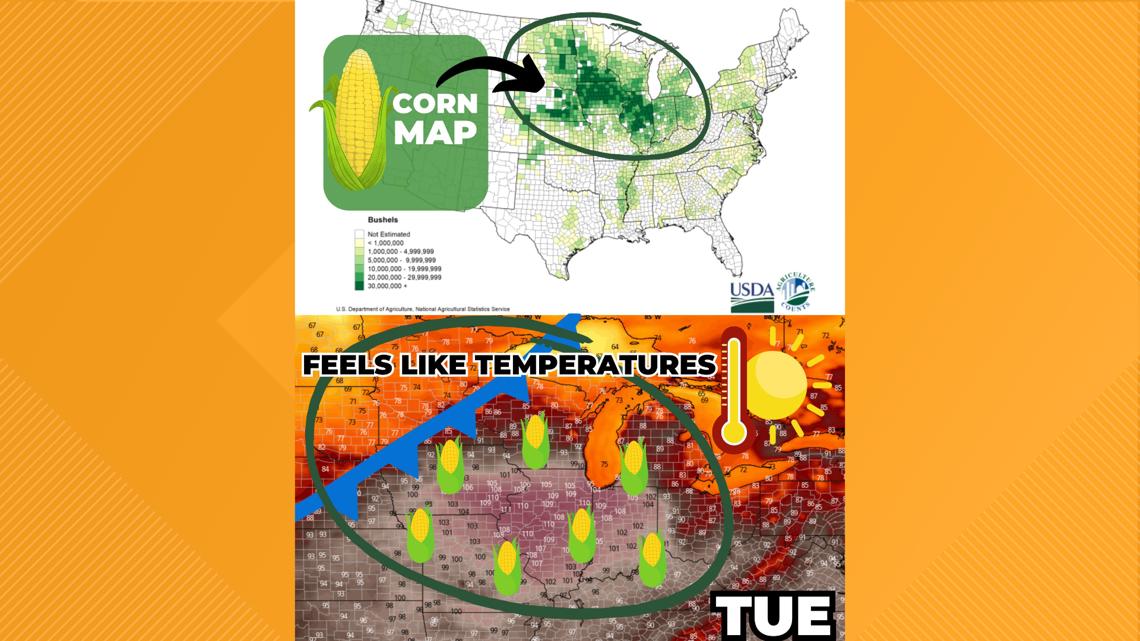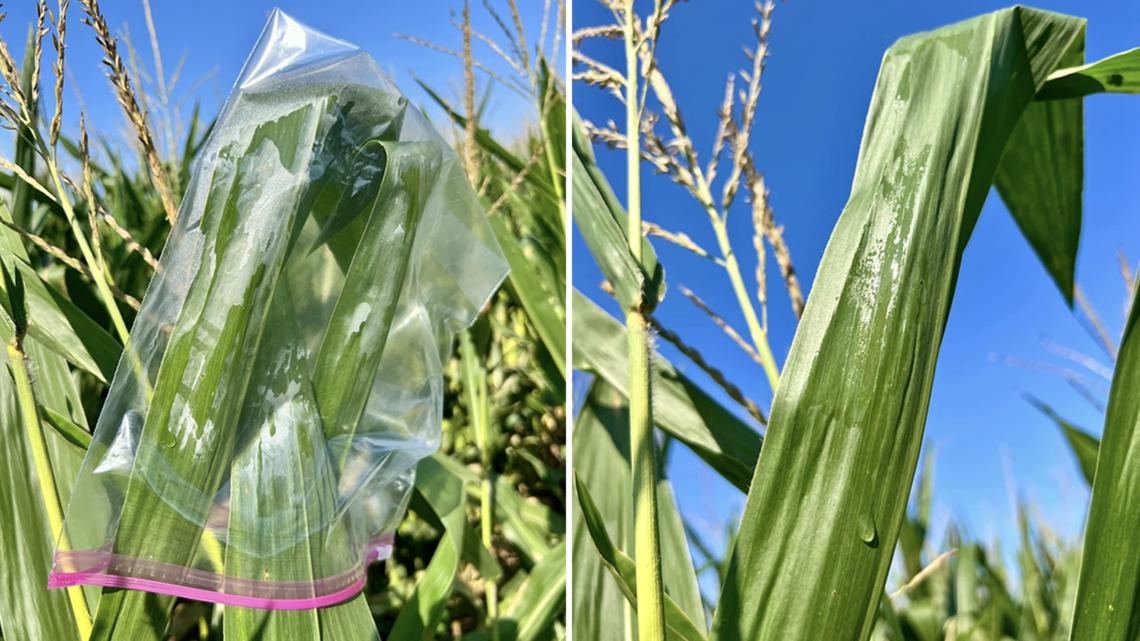INDIANAPOLIS — Temperatures are already creeping near 100 degrees this week in Indiana and, in some areas, corn is making it feel even hotter.
That's right, corn.
13News meteorologist Matt Standridge went out into the fields this week to find out why "corn sweat" is real.
Experts at Purdue University told Standridge corn plants want to stay at 86 degrees for their optimal growth rate. But when it's hotter than 86, the plants use more water and transpire more back into the atmosphere in an attempt to cool down, similar to how humans sweat to cool off.
Thus, we have "corn sweat."


The technical term for the process is "evapotranspiration," and it contributes to the high amounts of humidity agricultural communities sometimes experience during the summer.
The massive movement of water made by corn often leads to much higher humidity and heat indexes for people living near the fields and other surrounding communities, Missouri State climatologist Zack Leasor told KSDK.
To get an up-close look at the corn sweat phenomenon, Standridge visited an Indiana farm Monday, slipping a plastic storage bag over the top of a corn plant. After just 30 minutes, the bag had fogged up, and beads of "sweat" could be seen rolling down the plant.


He hypothesized that covering a plant deeper into the field, plus a longer wait time, would have produced a lot more water.
The effect is even worsened during times of low atmospheric humidity, with corn "sweating" even more water to make up for the moisture deficit. That will, for a short time, mean even more humidity in the air produced by the corn. Over time, however, it leads to a worsening of drought conditions.
"Eventually, because of added stress to the plant, corn will dry out the soils and run out of water," Leasor said. "This is known as what's called 'flash drought' where things evolve very quickly with damaging impacts to vegetation in just a couple of weeks. They quickly, at first, you see a lot of excess evapotranspiration and moisture, but then it cuts off because there's just no more water supply for the plants."

